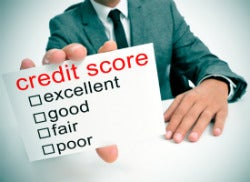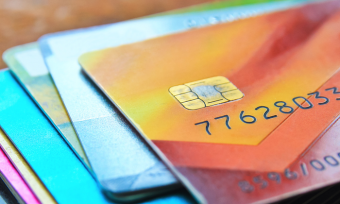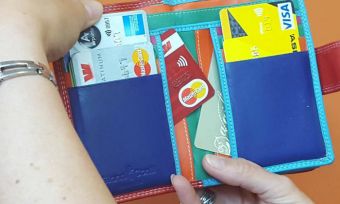These are a general explanation of the meaning of terms used in relation to credit cards.
Credit card terms and conditions may use different wording and you should read the terms and conditions of the relevant card to understand the fees and charges or inclusions and exclusions of that card. You cannot rely on these terms to the part of any credit card you may purchase.
Refer to the product disclosure statement (PDS).

Annual credit card fee: The fee charged annually for the use of the credit card.
Average daily balance: Balance is determined by adding up all balances during the month and then dividing the total sum by the number of days in a given billing cycle. Most credit card providers calculate the daily balance based on the annual rate. If the annual rate is 12 per cent, the monthly periodic rate would be 1 per cent. If the average daily balance on the card is $300, then it would yield a monthly charge of $3.00.
Balance transfer – Transferring the outstanding balance on your credit card to another card, usually one with a better rate.
Balance-transfer fee – A fee charged when you make a balance transfer. It may be a flat fee or a percentage of the transfer.
Big spender – Credit card users who spend a lot of money on their cards every month and always pay off the balance in full. For these cardholders, the best cards are those that provide adequate rewards programs and other services.
Cash advance – Withdrawing cash from a line of credit, usually incurs additional fees or a higher rate of interest.
Cash-advance fee – A fee charged when you use a credit card for a cash advance, such as withdrawing cash from an ATM. This may be a flat fee or a percentage of the amount of the cash advance.

Charge card – Rather than having a revolving line of credit, with this type of card the full balance must be paid off every month.
Credit limit – The maximum amount you can spend with your credit card before having to pay off some of the balance. Learn about how credit limits are determined here.
Want more finance tips?

Sign up for free to receive more news and guides, straight to your inbox.
By subscribing you agree to the Canstar Privacy Policy
Credit report – A history of loan and bill payments, kept by a credit bureau and used by financial institutions and other potential creditors to determine the likelihood that your future debt will be repaid. Lenders and insurers use information from credit reports, along with your credit score, to set loan and insurance rates. Also called a credit history.

Credit score – A number that summarizes your credit record and history. The score is based on several factors, including whether you pay your bills on time, your current level of debt, the types of credit and loans you have, and the length of your credit history. Lenders and insurers use your credit score and information from credit reports to set loan and insurance rates.
Creditor – The lending agency that is owed money
Default – When a consumer fails to make the necessary payments on a loan/ credit card payment. Defaults cause serious damage to your credit report.
EFT – Electronic Funds Transfer. The transfer of money between accounts by electronic machines like ATMs, home computers, and EFTPOS machines.
EFTPOS – Electronic Funds Transfer at Point Of Sale. Usually refers to a small machine that merchants use to receive payments from credit and debit cards.
Everyday spender – card users you use their credit cards for everyday purchases and pay off their balances each month. They need to be concerned less about interest rates and more about finding the right features.
Float – The amount of time that a cheque takes to be cleared or rejected for payment by a bank.
Full balance – The entire amount spent on your card that month.
Habitual spender – Those who keep a revolving credit card debt and don’t pay off their card each month. Typically need a low rate card with a low annual fee.
Impulse spender – Those card users who only spend in splurges (holidays, emergencies) and then spend months paying the balance off. Typically need a low rate card with a low annual fee.

Interchange fee – Fees paid between your bank and a merchant?s bank to accept card-based transactions.
Interest rate – The rate at which your outstanding balance increases per payment period when it goes unpaid.
Interest-free days – The number of days you have to pay your bill in full before an interest charge is assessed on purchases. It is the period of time between the date of a purchase and when the payment is due. This period typically does not apply to cash advances.
Introductory rate – An interest rate charged when you first acquire your credit card. These rates are usually very low, but revert to the standard high rates after 6 months or so.
Minimum interest charge – The minimum amount of interest you will be charged if you are charged any interest. For example, if your total interest charge is $0.75 but the credit card company’s minimum interest charge is $1.00, you will be charged $1.00.
Minimum payment – The listed minimum payment your credit card requires you to pay at the end of the month.
Overdraft – An overdraft occurs when you write a check, make an ATM transaction, and use your debit card to make a purchase, or make an automatic bill payment or other electronic payment for an amount greater than the balance in your checking account.
Over-the-Credit-Limit Fee – A penalty fee charged to you for exceeding your credit limit.
Penalty fees – Fees charged if you violate the terms of your cardholder agreement or other requirements related to your account. For example, your credit card company may charge a penalty fee if you make a late payment or if you exceed your credit limit.
Revolving account – Any account in which there are not a scheduled number of payments and the full balance need not be paid off monthly. Credit cards are the most common type of revolving account.
Rewards program – Benefits that come with the use of a credit card, often in proportion to the amount of money spent on it. Can come in the form of cash back, shopping vouchers, frequent flier miles, and general rewards.

Want more finance tips?

Sign up for free to receive more news and guides, straight to your inbox.
By subscribing you agree to the Canstar Privacy Policy




Share this article